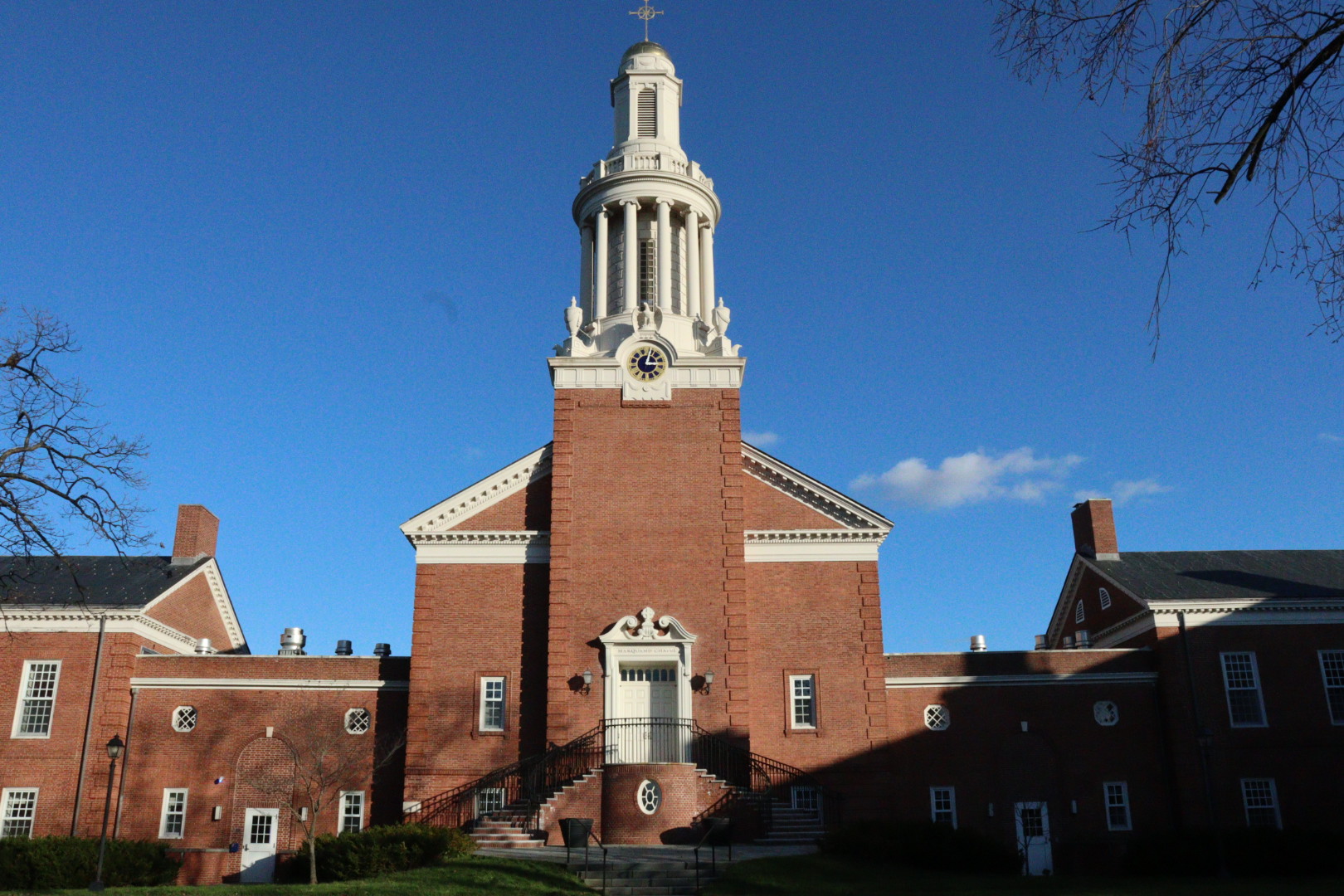Divinity School hosts first official non-Christian service in history
To commemorate Earth Day, students from Yale Divinity School held a non-denominational, spiritual celebration. The event marked the Divinity School’s first non-Christian service in its history, according to the student who organized it.

Hedy Tung, Staff Photographer
Yale Divinity School students celebrated Earth Day on Friday in an unprecedented way: by hosting the first official non-Christian service in the school’s history.
The Friday event was led by Tasha Brownfield DIV ’23 and occurred outside of Marquand Chapel. Around 80 students gathered at noon to celebrate Earth Day with songs, speeches and non-denominational prayers.
“There aren’t many spaces where people who fall outside a very particular Protestant lens can worship authentically at Yale Divinity School,” Brownfield said. “So for my colleagues and myself, I decided to make a space where people could worship authentically and include Black Theology, Indigenous ecology, some southern charm that separated from the elitism of the institution to something that’s really embodied and grounded within this space.”
According to Brownfield, who is one of the non-Christian students at the Divinity School, the service was Indigenous- and Black ecology-based with a sprinkle of cosmology and Pantheistic mysticism. Pantheistic mysticism is a religious practice that Brownfield is trying to found and curate herself.
Brownfield has been preparing for this event for the past month. A variety of different works were incorporated into the service, including poetry from eco-justice poet Jordan Sanchez, music from Rising Appalachia and the reading of an excerpt of Carl Sagan’s “Pale Blue Dot.”
The service began with a welcome speech by Brownfield. They first noted that the gathering represented the first non-Christian service in Divinity School history, and then went on to include a land acknowledgement, saying that participants “honor and respect the enduring relationships that exist between Native peoples and their land.”
This was followed by a Chalice Lighting, the symbol of the Unitarian Universalist tradition, and a prayer to Prithivi, Hinduism’s personification of Mother Earth.
Nai Garard DIV ’23 gave an opening reflection on Black Ecology. Stemming from Nathan Hare’s 1970 article “Black Ecology,” the concept speaks to the racialized aspects of climate change, and the way that the fight against climate change can be a means toward Black liberation, so long as the racist attributes of some of the traditional ecological thinking are revealed and mitigated.
Nathan Leach DIV ’23 sang and played banjo for the event in a rendition of “An Invitation” by Rising Appalachia.
“I think it’s really good to be figuring out how to integrate our spiritual practices into Earth care,” Leach said. “I think the more we can do to make that an expansive space, rather than a closed off space is really important –– eco justice does not belong to one movement, or to one religious tradition.”
Brownfield said that for the past month, she has been trying to figure out how to spread her religious ideas while not being exclusive to other voices that are also marginalized.
Meredith Barges DIV ’23 attended the event, and noted the confluence of different perspectives.
“This brought together the most eclectic, wide ranging set of voices and participation that I’ve ever seen,” Barges said. “It was just the most joyful thing to see all the different people and perspectives blended together and speaking to each other in this joint conversation about the Earth. I was so grateful that we could all do this.”
The Divinity School was founded in 1822.







